Arresting. Having spent considerable time scratching our heads and poring through the dictionary in search for an adjective that hasn’t been used before to describe the Alfa Tipo 33 Stradale, we think it’s a word that encapsulates the quasi-road car beautifully. The Stradale does more than simply catch your eye — it seizes your total attention and holds it ransom from reality. It causes jaws to drop, incomprehensible noises to utter hopelessly from mouths, and the odd eye to well up. But isn’t that everything a proper Alfa should do?
Law of averages
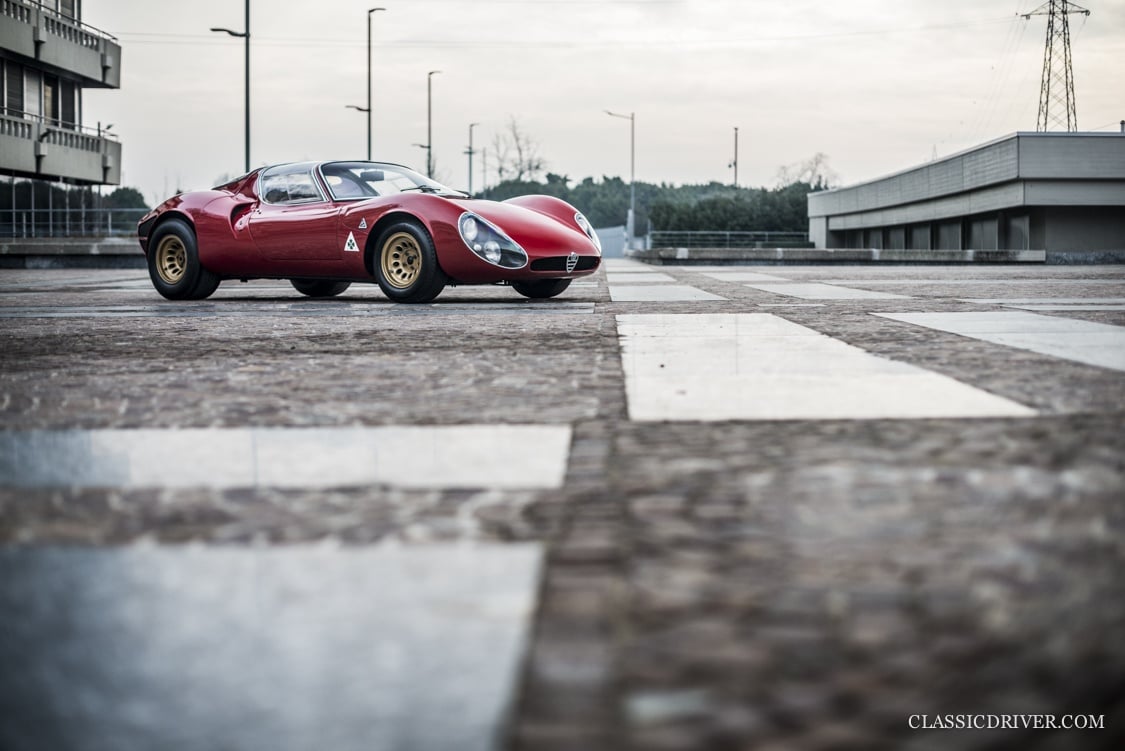

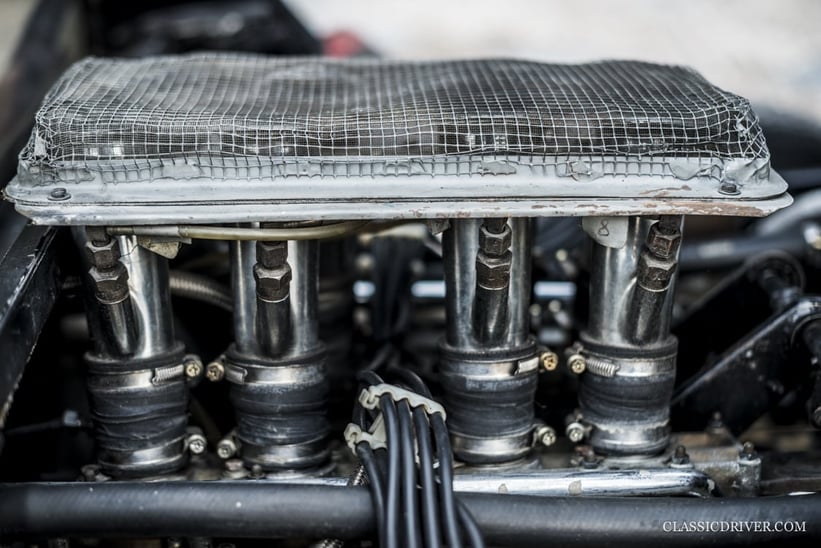
Ask any in-the-know car enthusiast what they think are some of the most beautiful cars in the world, and we’d bet that nine out of 10 times, the Tipo 33 Stradale would crop up. Of course, its beauty is entirely subjective, but we’d defy anyone to label Franco Scaglione’s slender and sensual, yet positively powerful, design as anything other than masterful. Its diminutive proportions are judged to perfection, and the way your eyes constantly trace the contours of the Marazzi-built aluminium body is freakish. It’s pure theatre, inside and out, right down to the injectors fitted high on the tall velocity stacks, which spit flames incessantly on the raucous start up.
Transformation

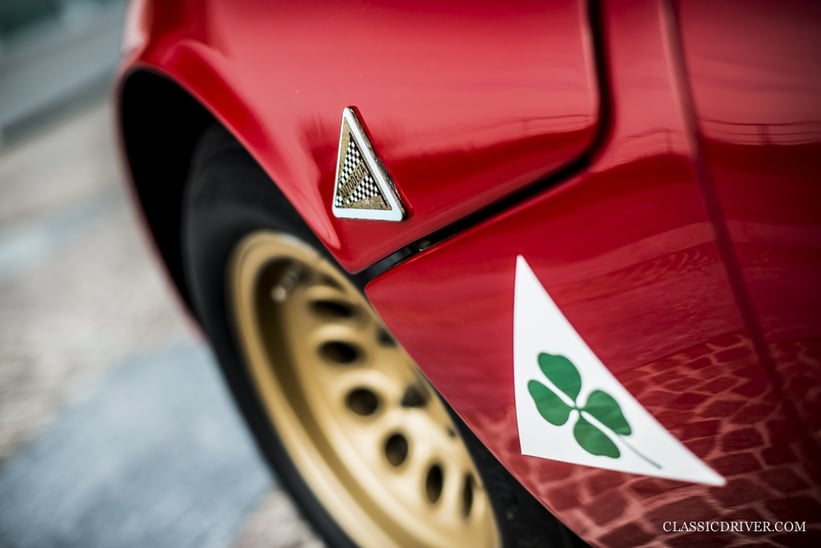
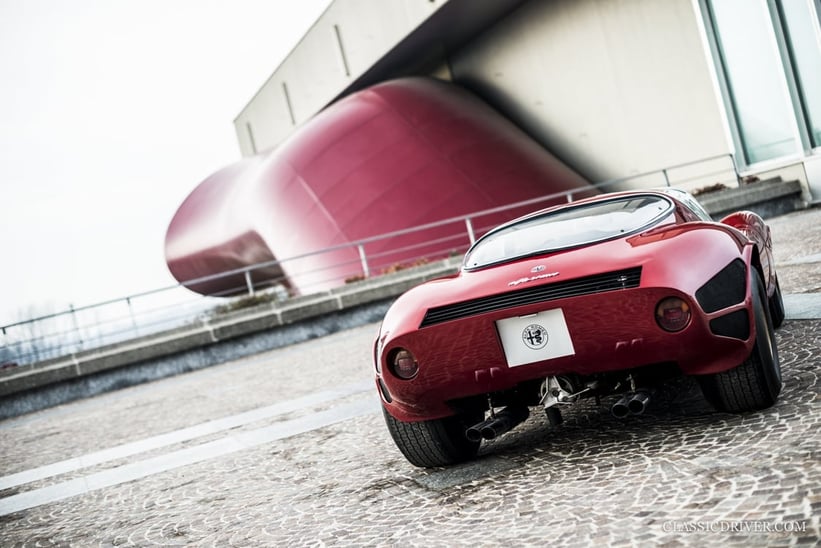
As you’ll well know, the Tipo 33 was Alfa’s go at using its racing knowledge and technology to build a car for the road. Except, as the successful Tipo 33 racer underwent its transformation from open sports prototype to closed supercar, startlingly few concessions were made in the name of practicality. Sure, the interior was strewn with leather and gone were the ground-hugging spoilers, but the lock-less steering rack was retained, side mirrors were deemed ungainly and left off, and the miniature 2.0-litre V8 — mounted amidships, just like the racer — was barely detuned.
Details, differences
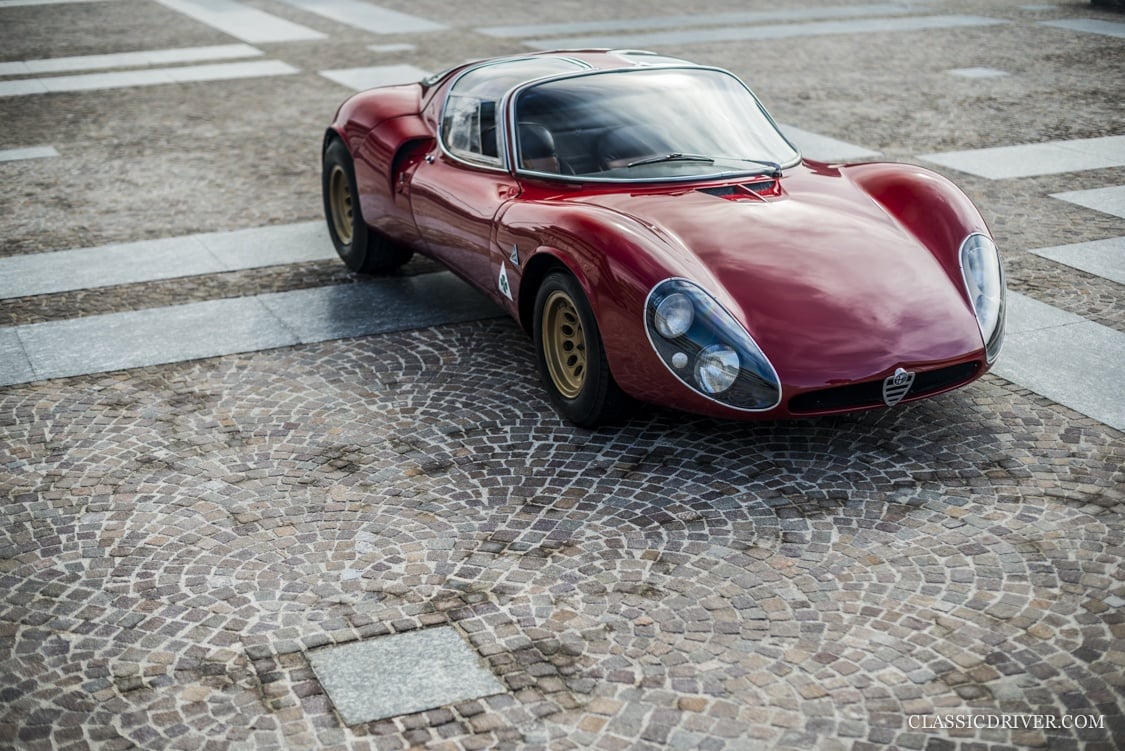
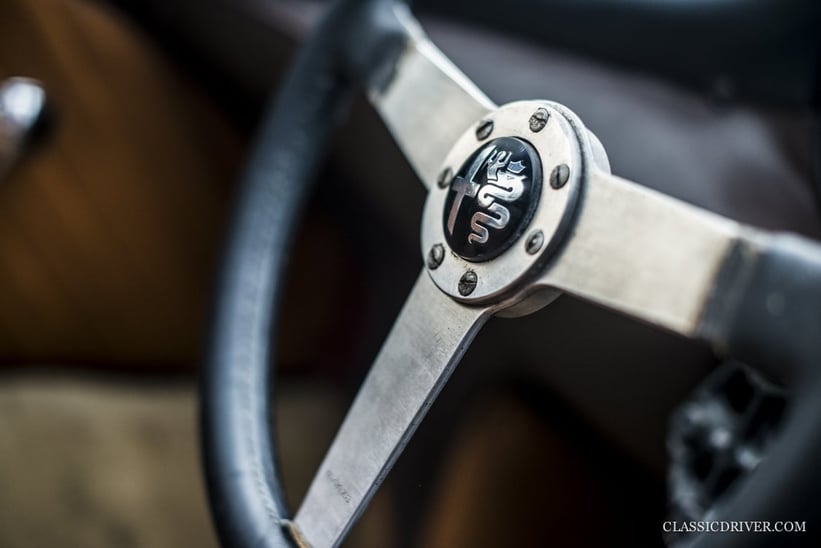
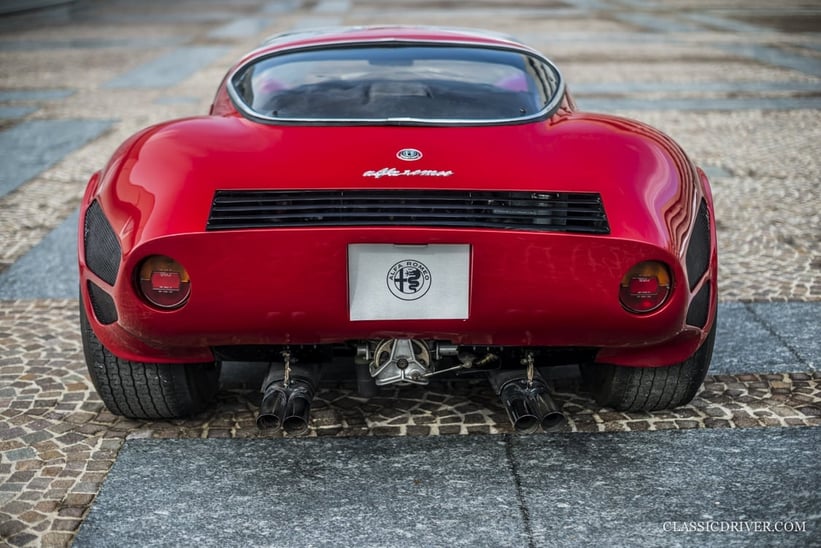
Power figures no-doubt varied from car to car, as did many of the small design details, but around 230bhp seems to be a commonly quoted figure. It might not seem like much, but when you consider that the car weighed a scant 700kg, it was certainly no slouch. The first private owner of a Stradale, American Henry Wessels II, was once quoted as saying, “…on the autostrada to Venice, I ran it for 4km at its 10,000rpm rev limit in sixth. I clocked it at 180mph.” Yes, this was still a purebred racer, all right.
The most expensive car in the world
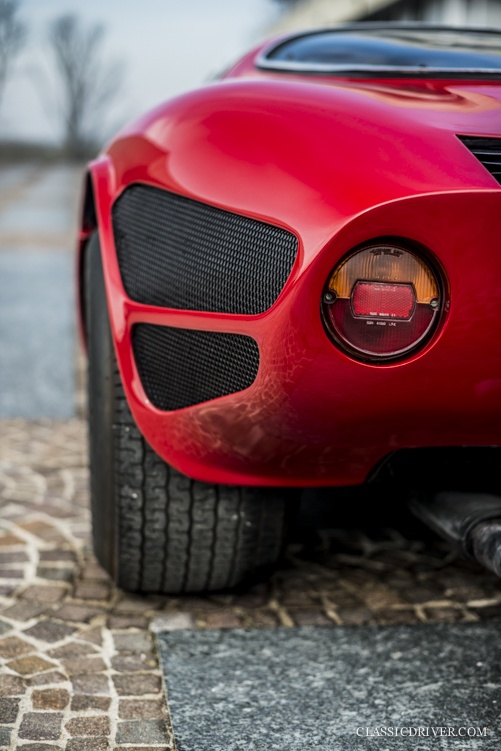
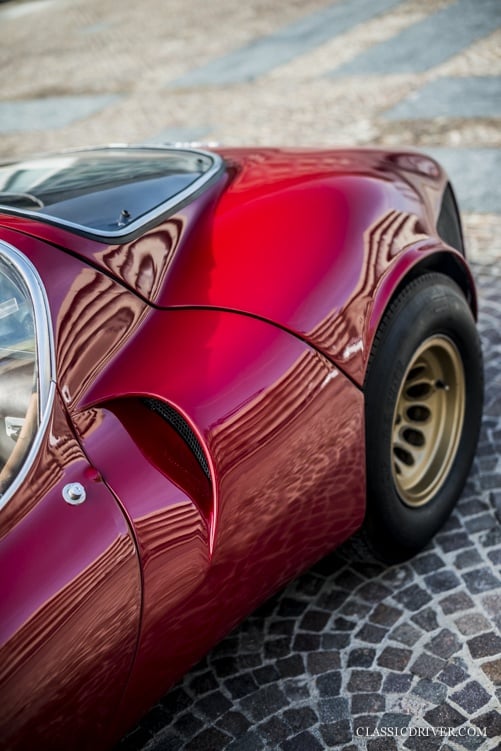
Furthermore, at 9.75m liras, the Tipo 33 Stradale was expensive — really expensive — and, as such, just 18 were built, five of which were used by the likes of Bertone, Pininfarina, and Italdesign as platforms for wild design studies (none of which, we hasten to add, have aged half as well as the Stradale). Fewer than 10 examples are known to remain and, as you’d expect, finding one for sale makes buying most 1960s competition Ferraris seem relatively straightforward.
Imitation is flattery
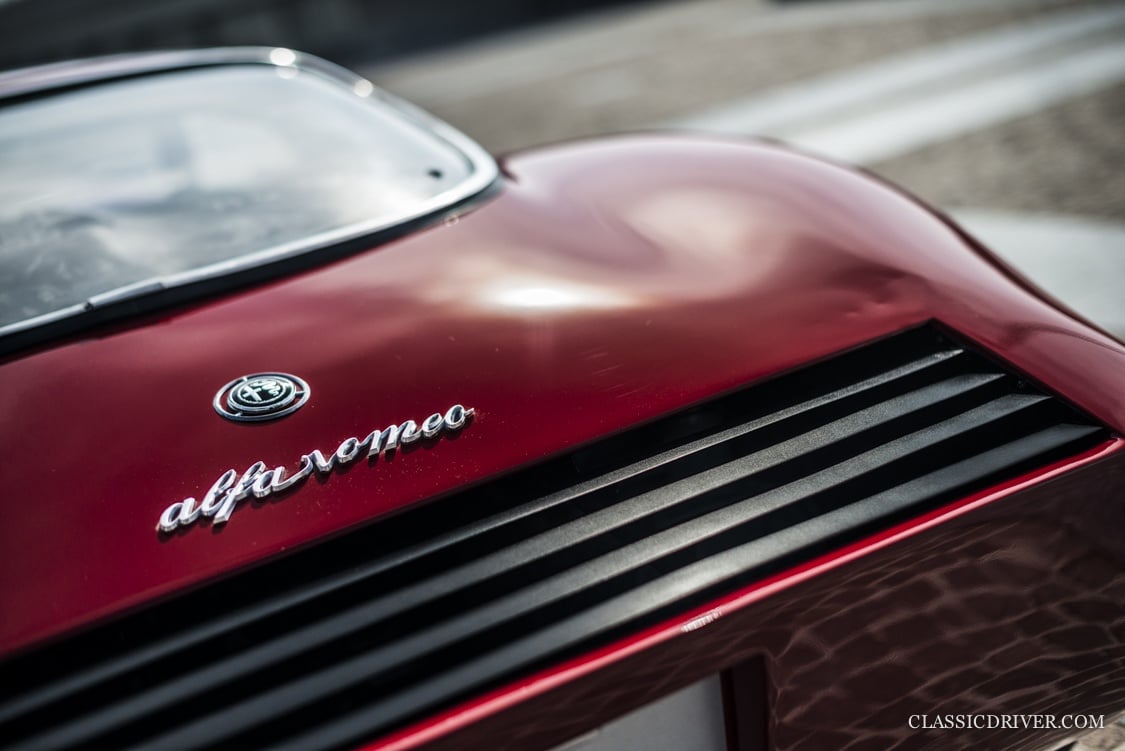
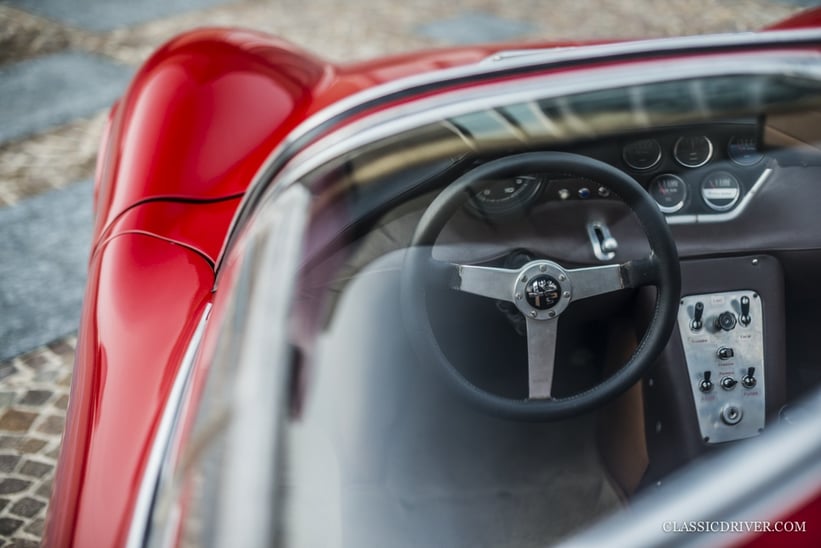
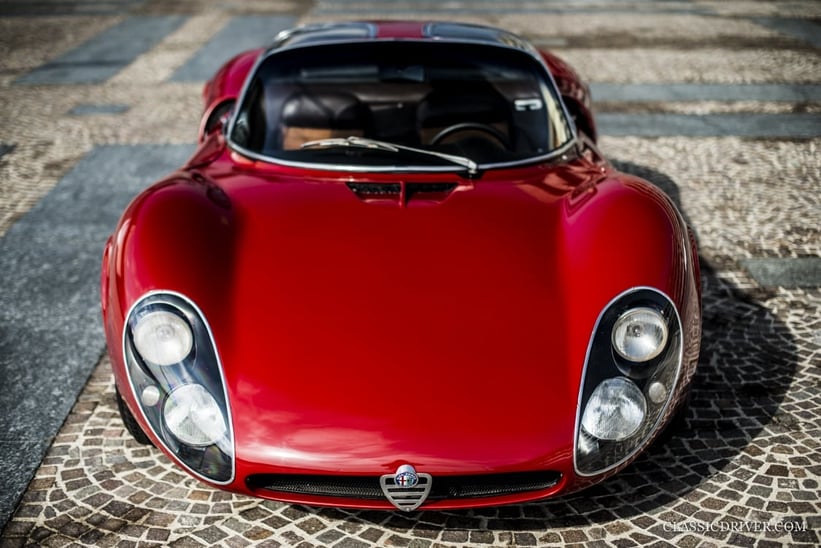
Save for some grainy period promotional footage, a fleeting appearance in the raunchy 1960s Italian flick That Splendid November, and, more recently, a number of showings on the concours d’elegance scene, these cars just aren’t seen in public. But its elusiveness is all part of the appeal. No heart could fail to stir at the sight of a Tipo 33 Stradale, and it’s as simple as that.
Photos: Rémi Dargegen for Classic Driver © 2017
































